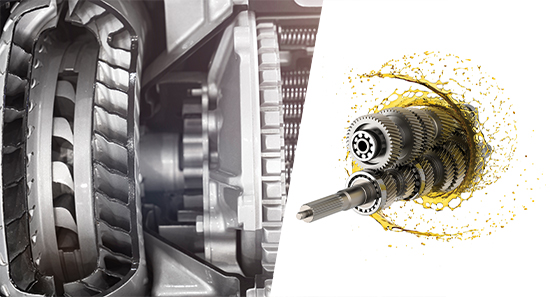Optimal machine operation is a crucial component of any industry and is essential for ensuring high-quality production. One often overlooked aspect is proper oil maintenance.
Motion Engineering & Services expert Josh Cornish shared some insights around machine maintenance and its associated risks. He discussed the implications of failing to properly maintain the oil in machinery can result in decreased performance, costly repairs, and potentially dangerous situations.
“We do oil analysis of industrial gear reducers, and the intention of that is to find out if there is any contamination within. The oil contamination can come in the form of moisture ingress from the external environment or from metal-to-metal contact inside the gearbox itself. Oil can also degrade over time, causing a loss of oil viscosity and lead to internal wear. We are called on to test lubrication in a whole range of different equipment and industries.”
Josh gave an example of this type analysis being carried out on a plastic extrusion machine, and the significance of effective maintenance applied to this type of machinery. He said, “in terms of importance of this machine, it’s a critical component of our customers’ production.”
He went on to say that failure to carry out effective oil analysis can pose environmental risks.
“Environmental impact is a big issue these days. If you have an oil leak, companies can get fined for releasing contaminants into the environment. So, it’s best to try and not get to that point in the first place.”
With this said, it is clear that preventative measures should be taken when considering machine maintenance, in order to avoid these potentially risky situations occurring.
Furthermore, in extreme cases, contaminated oil can also cause a machine to overheat or catch fire. This can not only result in costly damage to the machine, but can also pose a significant risk to the safety of workers and the facility – further illustrating the need for effective maintenance.
Josh shared what CRAM – which is a Motion business – are offering to combat these types of safety risks through their preventative maintenance program.
“Some machinery we look at is very large or high value and a replacement or refurbishment must be planned many months in advance to avoid unnecessary down-time. The oil sample analysis gives a clear snapshot of whether a piece of equipment is seeing high rates of wear, to give the operator time to make a decision about its repair”. We can provide the whole service from analysing the sample and interpreting the results to what the customer needs.”
He added “if it comes back that there’s metal in the oil, we can look at options of changing the oil in the short term, while we provide them with a quotation on a whole new piece of equipment, for example, a gearbox refurbishment or a new gearbox.”
Josh made another point in relation to oil costs in machinery. “Sometimes there’s hundreds of litres of oil in a gearbox. Customers can’t afford to just change that on a regular basis if the oil is still okay. The oil analysis is a small price to pay to avoid needlessly changing their oil all the time. They get the measurement and the viscosity and contamination levels all perfect, extending the service interval for a certain amount of time to achieve better value out of that lubrication.”
Therefore, cost saving benefits appear to be unique selling point associated with regular machine maintenance.
Josh added through Motion’s preventative maintenance program, “there is coverage in every state and city, where in some cases the customer can contact Motion engineers directly.”
Customers can get in touch with their local Motion representative to determine the difference specialist support can make to machine operation. By doing so, manufacturers can improve their production processes, reduce downtime, and ultimately increase profitability in the long run.

